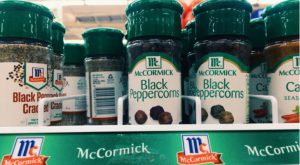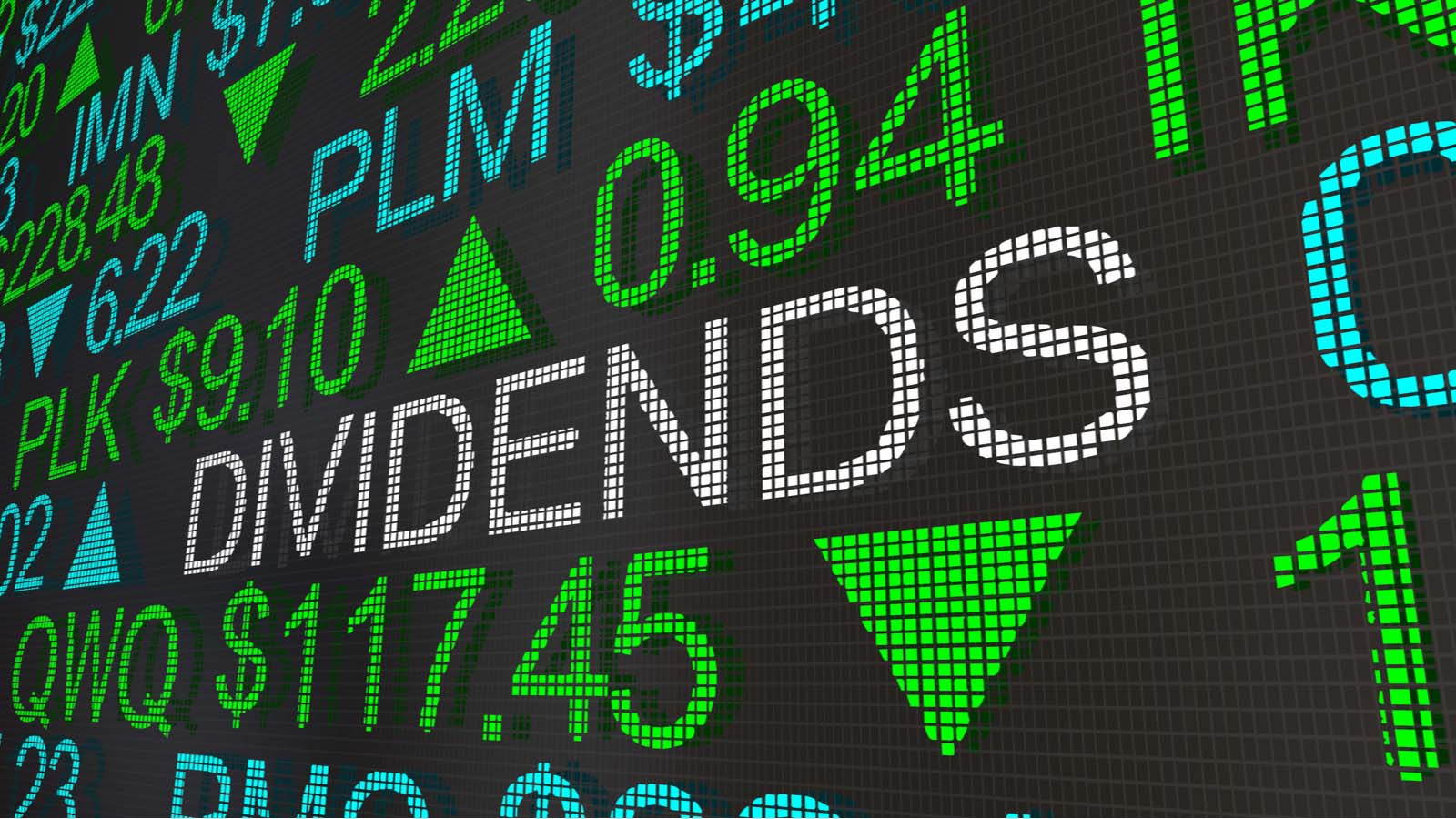[Editor’s note: This story was previously published in August 2019. It has since been updated and republished.]
Investing to “buy and hold” is trickier than it looks. The increasing pace of technological change means even the most successful, dominant companies have to continually adapt to keep up. Industries like energy, real estate and even consumer products are facing potentially significant long-term changes going forward.
In any era, amassing a collection of retirement stocks simply by buying the best companies and holding them for years can be a risky endeavor.
General Motors (NYSE:GM) was a classic “widows and orphans” stock until the last decade when GM wound up going bankrupt. GM shares basically haven’t moved in a quarter of a century. United States Steel (NYSE:X) once was a pillar of corporate America and a buy-and-hold stock. Polaroid and Eastman Kodak were once blue-chip stocks. Both went bankrupt as cameras changed from film to digital.
But there still are stocks to buy and hold out there that can last forever, while offering dividend income along the way.
Here are ten such retirement stocks to buy and hold forever.
Bank of America (BAC)

Dividend Yield: 2.56%
It might seem strange to open the list with Bank of America (NYSE:BAC). After all, we’re only a bit more than a decade on from the financial crisis.
During that crisis, BofA acquisition Countrywide Financial blew up in spectacular fashion, after pioneering many of the risky tactics that led to the bubble and subsequent bust.
But this is a different BofA.
Net consumer charge-offs hit a decade-long low last year. Its performance on credit metrics is strong. Government regulations have been criticized as slowing growth — but they’ve undoubtedly lowered risk as well, even if observers might argue that a better balance is needed.
No less than Warren Buffett is now BofA’s largest shareholder, through his Berkshire Hathaway Inc. (NYSE:BRK.A, NYSE:BRK.B). And the Oracle of Omaha is fond of saying that his favorite holding period is “forever.”
That seems likely true for BAC stock as well.
Diageo (DEO)

Dividend Yield: 2.07%
Change has come to the alcohol industry, with the number of breweries exploding worldwide and new distilleries popping up as well. The brands owned by Diageo (NYSE:DEO) are well-positioned to adapt to shifting tastes.
Diageo owns classic brands like Johnnie Walker whiskey, Tanqueray gin, Smirnoff vodka, and Harp and Guinness beer, among many others. What most have in common is a timeless quality and worldwide brand recognition.
As a result, while beverage giants like Coca-Cola (NYSE:KO) and Anheuser Busch InBev (NYSE:BUD) have struggled with earnings growth, Diageo grew net income by 13.5% in fiscal 2018 and expects consistent growth going forward.
Yet with a trailing multiple of 26.5, and with a dividend yield of 2%, Diageo stock isn’t all that dearly valued. Long-term investors would do well to own DEO and perhaps use the dividends to buy a bottle or two of fine whisky.
Medtronic (MDT)

Dividend Yield: 2.11%
In this day and age, the U.S. healthcare market, in particular, seems potentially volatile. Concerns about increased spending and political battles over the Affordable Care Act create more questions than answers.
But even with that uncertainty, Medtronic (NYSE:MDT) isn’t going anywhere. The company’s devices are an integral part of modern medicine, ranging from pacemakers to stents to bone grafts to imaging systems.
Even the risks involved in the sector look priced into MDT. Medtronic’s days of double-digit annual growth may well be behind it, but it’s not finished increasing earnings or dividends. MDT stock likely isn’t finished rising, either.
NextEra Energy (NEE)

Dividend Yield: 2.27%
Utility stocks are among the most common safe, buy-and-hold stocks. NextEra Energy (NYSE:NEE) is now the largest electric utility in the U.S. by market capitalization. That might actually be the only problem with NEE stock.
NextEra shares gained 24% year-to-date, and trades just off record highs. Potential valuation concerns aside, NextEra looks like a winner. It serves customers in the southern Florida region, still one of the nation’s fastest-growing areas.
A 22.6 forward P/E multiple is high for the space but not outlandishly so. And a 2.37% dividend yield provides income along the way.
Investors looking for value in the space might look for a smaller play like cheaper Dominion Energy (NYSE:D). But it’s usually worth paying for quality, and NextEra Energy looks like one of the best utility stocks out there.
McCormick & Company (MKC)

Dividend Yield: 1.39%
McCormick & Company (NYSE:MKC) is another quality company whose valuation might spook some investors. But MKC stock very rarely is offered cheaply.
The company’s market leadership in spices and seasonings provides both an impressive moat and protection against economic downturns. MKC stock did dip after the company acquired French’s mustard and Frank’s RedHot sauce from Reckitt Benckiser (OTCMKTS:RBGLY) at a price that looked a bit high to many investors. But MKC has recovered those gains and then some.
Top-line growth for McCormick likely isn’t going to be explosive, but it will be steady. The same has been true of MKC stock, which has returned an average of 13% a year over the past decade, including dividends.
With continuous cost-cutting initiatives, the contribution from the acquired brands and organic growth (and growth in organic products), MKC still should be able to provide double-digit annual returns going forward as well.
Allstate (ALL)

Dividend Yield: 1.92%
Allstate Corp (NYSE:ALL) long has used the tagline, “You’re in good hands,” and it’s true for Allstate investors as well.
ALL stock has almost quadrupled from late-2011 lows. And there could be more upside to come. After all, Allstate isn’t particularly expensive, trading at a 14 P/E.
Once any short-term worries subside, ALL should resume its march upward.
International Flavors & Fragrances (IFF)

Dividend Yield: 2.62%
International Flavors & Fragrances (NYSE:IFF) is a company most consumers encounter every day without knowing it and many investors aren’t exactly hip to it, either.
As its name suggests, the company develops flavors & fragrances across 13 categories, including cosmetics, perfumes, beverages and sweet flavors. Sales and earnings have increased consistently and so has IFF’s share price. At a 53 P/E, IFF does look a bit pricey. But, as with McCormick and other stocks on this list, investors should pay for quality.
IFF’s hidden, but key role, in so many industries, gives it a great deal of protection against both competition and macro factors. Acquisitions and a growing cosmetic additive business both provide room for growth.
Consumers may not know IFF, but investors should.
Lamb Weston (LW)

Dividend Yield: 1.11%
Lamb Weston (NYSE:LW) was spun off from Conagra Brands (NYSE:CAG) last year. Lamb Weston is the No. 1 potato producer in the United States. In fact, it manufactures the well-known fries at McDonald’s (NYSE:MCD), among other restaurant chains.
Lamb Weston also has a consumer business (including a small segment that manufactures frozen vegetables), while serving restaurants of all sizes. Health concerns might seem a long-term headwind against the business, but growth has been steady for years, and margins continue to improve.
LW is targeting international markets for growth, as French fries have much more limited penetration, while international audiences generally are intrigued by Americanized products.
Despite growth and leading market share, LW stock isn’t particularly cheap, trading at about 19 times next year’s earnings. The company did pick up a fair amount of debt in the CAG spinoff. But it’s paying that debt down, which should lower interest expense and boost cash flow going forward.
With many similar stocks trading at much higher multiples, LW seems to have room for upside. And international growth should offset any health-related concerns in the U.S., should they arise. America’s love affair with French fries isn’t going to suddenly end, and that should ensure years of stability for Lamb Weston at least.
Fortune Brands (FBHS)

Dividend Yield: 1.71%
Investors are commonly advised to diversify their portfolio. Fortune Brands Home & Security (NYSE:FBHS) has done just that.
The company operates in four segments: Cabinets, Plumbing, Doors, and Security. Among its well-known brands are Moen in plumbing, and MasterLock in security.
FBHS is more of a cyclical stock than most on this list, and the company no doubt has benefited from the steady if slow, housing recovery in the U.S.
But the company’s products also generate relatively stable replacement demand, and a 1.6% dividend yield provides modest, but growing, income.
Fortune Brands has been an impressive company since its founding and a solid stock since its 2011 IPO. There may be a bit more volatility here, but that’s a worthwhile price to pay for long-term investors. There’s enough value in Fortune Brands to ride out any market jitters.
Republic Services (RSG)

Dividend Yield: 1.82%
Republic Services (NYSE:RSG) is a bit smaller and likely a lot less well-known than rival Waste Management (NYSE:WM). But in this case, that’s not necessarily a bad thing.
Republic Services has outgrown its larger competitor in both sales and earnings over the past five years. RSG stock has modestly outperformed WM over the same period as well. Investors appear to believe that will continue, as Republic Services is valued a bit higher than Waste Management, at least based on forward earnings multiples.
Both RSG and WM are solid long-term plays. Contracted revenue and steady demand should support both companies for years to come. There’s room for further acquisitions in a relatively fragmented space. Republic Services gets the nod here due to slightly better growth and more room for margin improvement.
But investors looking for safe, stable growth can’t go wrong with either RSG or WM.
As of this writing, Vince Martin was long MKC.
